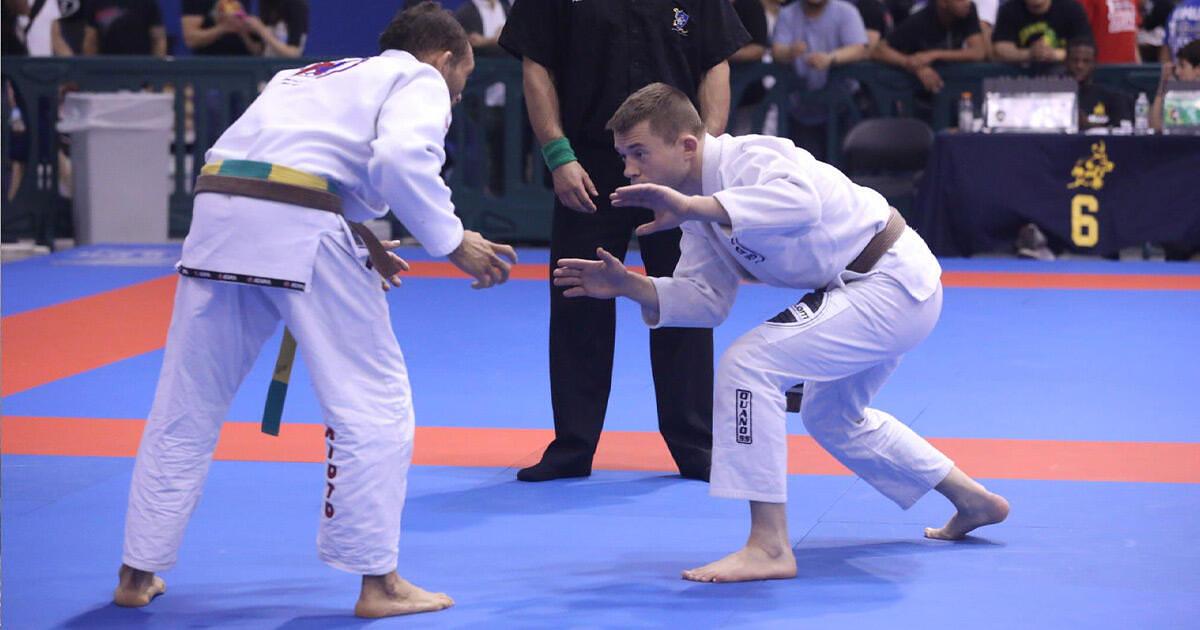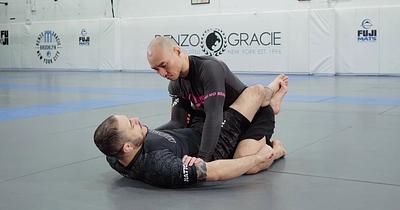The Importance of BJJ Tournaments for Evaluating Your Skills and Progress
by Team Digitsu
Updated: March 24, 2025

This topic begs the question, are you required to compete to qualify as a BJJ fighter? The clear answer to this is no. However, now and then, your coach may advise you to give tournaments a try.
This is because BJJ competitions hold numerous benefits for their participants. This post will examine some of these benefits and how they impact your abilities.
But first, you must understand the whole phenomenon behind BJJ competitions.
How Do BJJ Competitions Work?
Single elimination is the standard rule for Jiu-Jitsu competitions. In other words, there is no losers bracket, and elimination from the tournament occurs after a loss. They are set up to use a bracket format by randomly choosing the participants' spots or utilizing a tournament seed system. Then, based on the organization hosting the competition, the exact match rules are decided. Regardless of the ruleset, staying calm and focused on competition day is essential.
There are various BJJ competition categories, each with different rules. They include the Eddie Bravo Invitational (EBI), Combat Jiu Jitsu, Round Robin, Tournament Format, ADCC Format, and more. Which one works the best?
IBJJF
The International Brazilian Jiu-Jitsu Federation, or IBJJF, has its own set of competition rules that it adheres to while hosting or organizing competitions.
The information you provide when signing up for one of these includes your name, belt level, age, gender, and weight. This will then determine your competition division. Further, the length of your battles is also based on your belt level;
- white belts get five minutes
- blue belts get six minutes
- purple belts get seven minutes
- brown belts get eight minutes
- black belts get 10 minutes.
In addition, these competitions are usually very firm on their participants wearing Gis that follow the rules about sizing (sleeve length, etc.) and patch locations. These Gis must be in good condition and blue, white, or black. Finally, when it comes to receiving points, two points are usually allocated to a participant when they sweep, take down or get to the knee on the belly position with their opponents. Additional points are also awarded for either the mount or back mount (4 points) and when you pass someone's guard entirely (3 points). A submission will win the match instantly, regardless of points. Points determine the winner if time runs out and there are no submissions. If points are equal, then advantages (partial points) are considered. Finally, if advantages are also equal, then penalities are considered.
Eddie Bravo Invitational (EBI)The Eddie Bravo Invitational's rules are relatively simple to understand. The match consists of a 10-minutes where no points are counted, and a submission wins the match. If there is no winner during regulation, then there is overtime, where each competitor can choose to start in an armbar position or on the opponent's back. They fight from this position for 2 minutes unless the opponent escapes or there is a submission. If one competitor submits the opponent and the other does not submit them when they have a dominant position, they win. After 3 rounds of this, if neither competitor has won, the total time spent in a dominant position is added to determine the winner.Combat Jiu JitsuJust as the name suggests, Combat Jiu-jitsu is significantly more aggressive than other types of Jiu-jitsu. It is closely related to the original Gracie Jiu-jitsu style of fighting. Slaps and strikes are usually allowed, and the rounds may last 10 minutes. However, this is only allowed once the opponent has been "downed"; otherwise, no strikes (unless it's palm strikes) are permitted when both competitors are standing. These matches are usually worn by TKO or submission.Round Robin
In a round-robin event, every participant typically goes up against every other competitor once. Competitors from each level are paired with other competitors in their division to earn up to 4 matches in a Jiu-Jitsu round-robin matchup using the Grappling Industries system. Following the round-robin format, each group's top grapplers would face a single-elimination playoff battle to determine the victor. If there are few competitors in a division, each competitor could go up against the other in the round-robin portion. In the case of tiebreakers, the following algorithm will be utilized in order: Most Wins > Most Submissions > Head To Head Match > Most Points Scored.
What are the Benefits of Competing in BJJ?
Training in BJJ alone has numerous benefits. Some participate in BJJ to boost their confidence or to learn basic self-defense techniques. This is entirely natural, but most of these folks might not realize that competition is one of the surest ways to up your game if you're interested in improving. Here are some of the benefits of competing in BJJ tournaments.
BJJ Competition Can Be a Great Chance to Improve
You can always attain your black belt without necessarily participating in competitions. However, it's safe to understand that this process may take longer than expected. But this is not usually the case for those who participate in tournaments. In most cases, those who compete move up the rank faster than those who don't. This is because of the improvements achieved through pushing yourself beyond your comfort zone. By facing diversified challenges, you learn a new skill and work on perfecting it. Although this is not to say that you can't learn a new skill through practiced techniques and concerted drilling, many renowned black belt holders have never competed or have only competed a few times. The speed of improvement is what drives the competing progress.
Achieving a Win In a BJJ Match Is the Most Satisfying Feeling
Competition preparation is challenging. Perhaps not as much physically as mentally. Imagining potential consequences keeps you awake at night. Your moves are being planned. Your body is under the most stress, which may build up for at least a few days before the competition.
However, it's the nicest feeling in the world after everything is done and you emerge victorious. The worry disappears, and for a few days, you can clearly understand why professional athletes are so confident. "The Winner Effect" may lift your mood for days, which feels fantastic.
This winner effect typically results from realizing that you've done everything you can and that no one wants anything more from you than to give your all and enjoy yourself.
However, it's the nicest feeling in the world after everything is done and you emerge victorious. The worry disappears, and for a few days, you can clearly understand why professional athletes are so confident. "The Winner Effect" may lift your mood for days, which feels fantastic.
This winner effect typically results from realizing that you've done everything you can and that no one wants anything more from you than to give your all and enjoy yourself.
You Determine Where Your BJJ Training is At
You train and hone your talents on the mat for months or even years, but you only use them on your academy training partners. As you grow to know one another, you can adjust your playing style to suit the partners you roll with. The greatest method to evaluate your abilities is to use them on a contestant unfamiliar with your "game." That's where competitors come in. Unfamiliar opponents come with unfamiliar moves that you can learn from and gauge where your training is at. This becomes a challenge that is definitely worth taking on.
Improves Your BJJ Training by Giving You Short-Term Goals to Focus on
Preparing for competitions is a great short-term goal to focus on in your quest to improve your training. Competitors are always advised to prepare in advance, preparing to compete soon. To prepare, they are always advised to allow themselves 6–8 weeks of intense training with the competition in mind. Further, if their schedule permits, it means attending class at least three to four times per week. Moreover, as a competitor, your coaches should know your goals to encourage you in class and organize the appropriate rounds to prepare you for the tournament environment. Focusing on this goal keeps you pushing beyond your comfort zone in class.
BJJ Competition Helps You Fix Your Weaknesses
Competition reveals our weaknesses at levels that rolling in a gym couldn't. Because it isn't a part of your activities, you and your gym companions might not be aware of your weakness. Yet your weaknesses are frequently exposed once you're on the competition's mat. Perhaps someone finds a weakness in your strategy that you were unaware of and taps you out. Fantastic! Now you know what to focus on when you return to the gym.
Sometimes when we go to compete, we become unduly anxious. In such a stressful circumstance, we discover that we are unable to calm down. More competition is the only solution to this problem. Therefore, if you can participate in a tournament, participate. This way, you'll recognize your flaws and address them. Even if you succeed, you will be able to identify areas for improvement.
Sometimes when we go to compete, we become unduly anxious. In such a stressful circumstance, we discover that we are unable to calm down. More competition is the only solution to this problem. Therefore, if you can participate in a tournament, participate. This way, you'll recognize your flaws and address them. Even if you succeed, you will be able to identify areas for improvement.
Conclusion
Everybody who can compete should do so at least once during their BJJ career. Whatever your motivation for taking up jiu-jitsu, competition can help you achieve your objectives. It's one thing if you can't compete because of your health, mental capacity, or even finances; it won't be used against you. However, if you have the ability but decide not to, you stand to miss out on one of the greatest learning chances in your Jiu-Jitsu career. We get stronger when faced with adversity.


